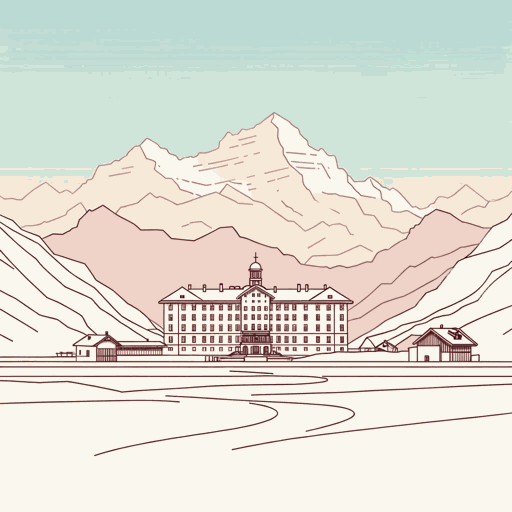33 pages • 1 hour read
Thomas MannThe Magic Mountain
Fiction | Novel | Adult | Published in 1924A modern alternative to SparkNotes and CliffsNotes, SuperSummary offers high-quality Study Guides with detailed chapter summaries and analysis of major themes, characters, and more.
Summary and Study Guide
Overview
Thomas Mann’s The Magic Mountain was conceived in the 1910s, which is when the bulk of the novel takes place; however, it was not completed until 1924, after the cataclysmic events of the first world war.
Mann was born in 1875, just four years after the creation of the modern state of Germany and the failed revolutionary Commune of France. During World War II, he was exiled from Germany, where Nazis burned copies of The Magic Mountain. He relocated to the United States and became a U.S. citizen in 1944.
World War I was the culmination of many upheavals to the global order that took place within Mann’s lifetime. The telegraph and railway were giving way to the motorcar and radio. Rapid technological changes were shrinking the world; advancements in medicine and the relentless exploitation and colonization of a global working class created to substantial changes to the health and prosperity of the European and American bourgeoisie.
A Modernist bildungsroman, or coming of age novel, The Magic Mountain takes place throughout the decade leading up to World War I and explores these global technological and ideological shifts through its main protagonist, Hans Castorp. The novel was Mann’s first to reach wide international acclaim and helped secure him a Nobel prize. This study guide refers to the 1995 translation from the German by John E. Woods.
Plot Summary
Hans Castorp takes a break from his engineering studies in Hamburg to visit his cousin, an officer in training named Joachim Ziemssen, who has tuberculosis. Joachim has been staying in the International Sanatorium Berghof, which is in the Swiss Alps near the town of Davos, in a location so far above sea level that the air is thin and birdsong is rare. Hans’s stay is meant to last three weeks; Joachim warns his cousin that time at the sanatorium does not conform to anyone’s expectations. By way of introduction, the novel’s narrator takes special care to describe Hans Castorp as nothing more or less than a representative of the German middle class, “neither a genius nor an idiot” (30-31).
During his three-week stay, Hans experiences a near-eternity in the mountain sanatorium as he acclimatizes himself to the unique outlook, routine, and language of its doctors and patients. These residents hail from every corner of the globe; their only similarity is that they are ill and that each can pay their weekly bill at the sanatorium indefinitely. Hans begins a series of discussions with a resident named Ludovico Settembrini, a self-described humanist and freethinker from Italy, who extols the virtues of western civilization and deplores the decadence that defines life at the sanatorium. Hans also admires another resident from a distance, a Russian woman named Clavdia Chauchat. Hans comes down with an undefined illness himself, and he joins the residents of the sanatorium.
Over the months and then years, Hans takes up a series of esoteric inquiries. He drops engineering and takes up human anatomy. His talks with Settembrini regarding the nature of reason and art intensify. He comes to know Clavdia Chauchat well enough to vaguely understand that she is a self-described libertine who finds Hans’s bourgeois sense of conformity and propriety at once ridiculous and amusing.
As time passes, Hans is exposed to different points of view that compete for his attention. Settembrini’s intellectual opposite, Leo Naphta, regales Hans with a philosophy of dialectical struggle and religious violence. Joachim succumbs to his illness and dies. The libertine Mynheer Peeperkorn arrives, representing a forceful personality and material and erotic excess which is at once the pinnacle of the bourgeois imagination and its unrestrained inverse. He later commits suicide after a group visit to a nearby waterfall.
Throughout, Settembrini attempts to reclaim Hans’s intellectual attention with the aim of making a break between Hans and the culture of the sanatorium and getting Hans back to the “flatlands” where he belongs. Naphta and Settembrini engage in a pistol duel, during which Naphta, too, commits suicide.
Hans’s stay at the sanitarium lasts seven years. Afterwards, he returns to the flatlands to participate in World War I, alienated from his surroundings and no wiser than when he began. The narrator suggests that Hans dies in the war like so many of his generation.
Related Titles
By Thomas Mann




